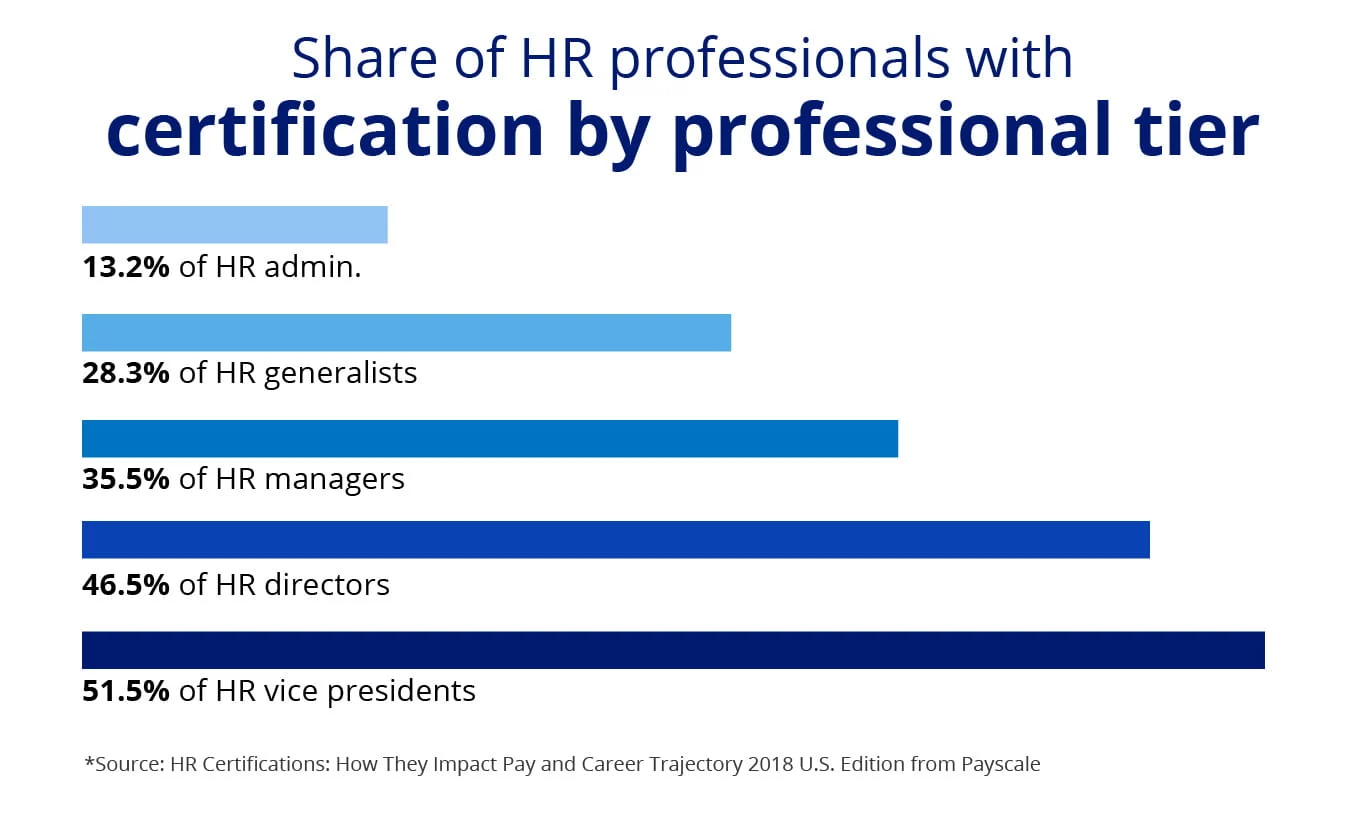Inspirational journeys
Follow the stories of academics and their research expeditions
The Benefits of HR Certification: A Guide for HR Professionals

As the field of human resources continues to grow and evolve, HR professionals are increasingly seeking to enhance their skills and knowledge through certification programs. Here are some of the key benefits of HR certification:
1. Demonstrates expertise and credibility: Earning an HR certification shows that you have achieved a certain level of expertise in your field. It demonstrates your commitment to the profession, and provides evidence to employers, colleagues, and clients that you are a credible and knowledgeable HR professional.
2. Enhances career opportunities: HR certification can open up new career opportunities and increase your chances of being considered for leadership roles. Many organizations require or prefer HR professionals who hold certifications, and it can be a deciding factor when considering candidates for promotions or new job opportunities.
3. Increases earning potential: HR professionals who hold certifications typically earn higher salaries than those who do not. Certification is seen as a mark of distinction and often translates into increased compensation.
4. Provides ongoing professional development: HR certification requires ongoing learning and development, which helps you stay current on the latest trends, regulations, and best practices in the field. This can help you provide better service to your organization and clients.
5. Builds professional network: Many HR certification programs offer opportunities to connect with other professionals in the field, providing a valuable network for learning, sharing ideas, and building relationships.
6. Demonstrates commitment to ethical standards: HR certifications typically require adherence to ethical standards and codes of conduct. This demonstrates your commitment to upholding high ethical standards and helps build trust with clients, colleagues, and employers.
7. Differentiates you from competitors: HR certification sets you apart from other HR professionals who do not hold certifications. This can be particularly valuable in a crowded job market, where employers are looking for ways to distinguish between candidates with similar qualifications.
8. Increases organizational credibility: HR professionals who hold certifications can help enhance the credibility of their organizations. This is particularly true for organizations that are in highly regulated industries, where compliance with HR regulations is critical to success.
9. Provides a framework for professional development: HR certification programs often provide a structured framework for ongoing professional development. This can help you identify areas where you need to improve your skills and knowledge, and provide a roadmap for achieving your career goals.
10. Improves job performance: HR certification can improve job performance by providing HR professionals with the knowledge and skills they need to be more effective in their roles. This can help them provide better service to their organizations, and help drive better business results.
In conclusion, HR certification provides numerous benefits to HR professionals seeking to enhance their careers and expertise. It demonstrates credibility, enhances career opportunities and earning potential, provides ongoing professional development, builds a professional network, demonstrates commitment to ethical standards, differentiates you from competitors, increases organizational credibility, provides a framework for professional development, and improves job performance. Consider pursuing HR certification to take advantage of these benefits and advance your career in the field of human resources.
Tags:
HR Certification hr human resources certified hr shrm hrci phr sphr aphr certificate finance office benefit manager hr business money diploma cash shopping employment star trophy achievement sale buying award winner coupon set loyalty points reward work currency success people symbol ceremony investment result scientific document loyalty discount agreement contract program tablet pharmacy0 Comments
Categories
Recent posts
Navigating the Organization
Fri, 18 Apr 2025

SHRM Topic - Leadership
Thu, 17 Apr 2025




Leave a comment